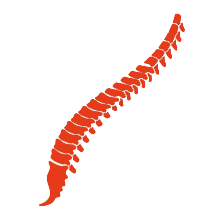ZOOLOGICAL SCIENCES DIVISION |
|
ZSD scientists are engaged in exploration, collection, preservation, identification and documentation of faunistic wealth of Pakistan. Huge collection of animals including insects, mollusks, fish, amphibians, reptiles, birds and mammals have already been added in ZSD reference collection for further exploitation in applied research. The Division conducts research in zoogeography and biodiversity with special reference to the impact of environmental degradation.
ZSD provides advisory/consultancy services to different organizations in conservation of wildlife and ecosystem rehabilitation. The Division helps in preparation of dioramas, exhibits, pamphlets and posters related to zoological sciences. It also imparts training in taxidermy, preservation and curation. The scientists working in this Division are mostly foreign trained and highly qualified. They published three books and over 180 research articles in national and international journals. The Division organized an International biodiversity expedition “ Hunza-2000” in collaboration with University of Oxford, UK and Florida Museum of Natural History, USA to document high altitude biodiversity and ecology of Northern Areas. The Expedition represented the most comprehensive biological survey ever undertaken in the high altitudes. The Expedition was an extension of seven years long research collaboration on butterflies between Pakistan Museum of Natural History and Oxford University Natural History Museum. The Expedition not only helped in extending knowledge of Himalayan-Karakoram biodiversity but also provided baseline data for the future assessment of environmental changes.
|
 Research Research
|
It's research is predominately focused on systematics and biodiversity. |
 Entomological collections: Entomological collections:
|
A large number of specimens are housed in the insect repository of PMNH. The dry specimens are kept in specially prepared drawers placed in a number of cabinets. A part of insect collection has also been kept in jars or vials as wet preservation. All the collected specimens are properly labeled with such information like collection date, locality and collector's name while associated field data has been recorded in relevant catalogue register. This information helps in further research activities like proper identification of a specimen and preparation of a research articles/reports. |
 Invertebrate collections (Other than insects): Invertebrate collections (Other than insects):
|
A large number of invertebrate specimens have been preserved at PMNH. These Invertebrates are collected from variety of habitat, ranging from terrestrial to aquatic and marine environment. These specimens are properly preserved, catalogued and have been studied by the researchers investigating the invertebrate zoology of the region. |
 Vertebrate Collections Vertebrate Collections
|
 Fish (Ichthyological) Section: Fish (Ichthyological) Section:
|
The ichthyology section of ZSD houses a large number of specimens collected from all over the aquatic habitat of Pakistan including freshwater, estuarine and marine waters. They are properly preserved, catalogued and are used in different educational and research activities by the researcher, scientists and students. |
 Amphibians and reptiles collections Amphibians and reptiles collections
|
A lot number of specimens of amphibian and reptiles have been collected by ZSD scientists across Pakistan. Several new species have been described from Pakistan and are housed as TYPE specimens. All the collected specimens are properly preserved and catalogued. |
 Birds' repository Birds' repository
|
The birds' repository of ZSD is very rich having a large number of specimens of resident and migratory birds. These are properly catalogued and preserved in the form of stuffed specimens or as a study skin. |
 Mammals Section Mammals Section
|
The habitat of Pakistan is very rich that supports large number of mammals ranging from high altitude animals like snow-leopard, brown bear, the whale (not often) and dolphins that are found in the Arabian sea of Pakistani coast. Markhor (Capra falconeri) is the national animal of Pakistan. The section of mammals is divided into two groups, small and large mammals. All the mammals are preserved at the repository in the form of stuffed or skinned animals. Taxidermy section of ZSD is responsible for the preparation of stuffed animals and study skins. The mammalian collections and taxidermy activities are used for the education, research and conservation purposes. |
|
 Pakistan Museum of Natural History.
Pakistan Museum of Natural History.